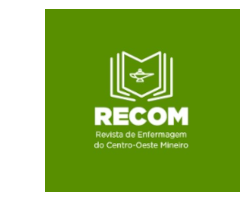Effects of an educational group in parental practices promoting child development
DOI:
https://doi.org/10.19175/recom.v13i0.4612Keywords:
Poder familiar, Desenvolvimento Infantil, Educação em Saúde, Atenção Primária à Saúde, Enfermagem PediátricaAbstract
Objective: to evaluate an educative group in the parental practices promoting child development adopted by the family members of infants. Methods: quantitative randomized clinical essay carried out in a primary care service with families of infants. The control group received usual health follow up, and the experimental group was invited to interact with the educational group. The parental practices were evaluated by using the instrument from the World Health Organization (WHO) and United Nations International Children’s Emergency Fund (UNICEF) to evaluate care promoting child development. Results: a group of 21 family members of infants participated in the study. After the intervention, parental practices in the experimental group, such as playing with domestic objects (46.1% versus 12.5% in the control group), playing with house-made toys (38.5% versus 12.5% in the control group), and telling stories with child books (38.4% versus 12.5% in the control group), increased. Conclusion: the educational groups supported parental practices of promoting child development of infants.






